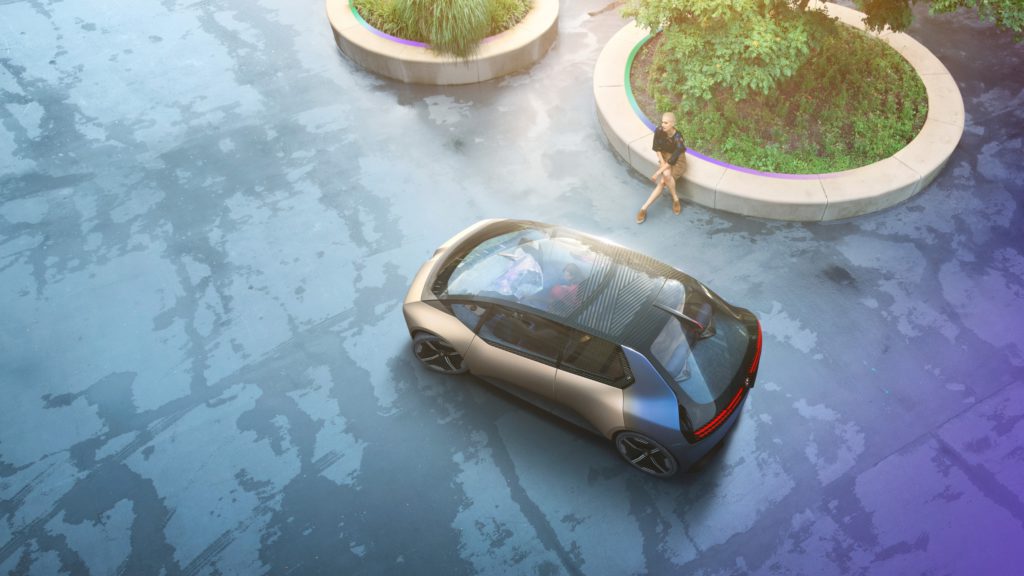‘What will move us next?’ is this year’s motto at the IAA Mobility 2021 in Munich, and it seems BMW might have come up with one possible answer to that question.
At the event, the German car manufacturer presented a fully-recyclable car – the i Vision Circular, which it plans to launch in 2040. The four-seater not only received attention for its futuristic looks but also its approach to sustainability. The recyclable city car is made entirely from both old and renewable raw materials. A design that uses 100% recyclable materials, including the battery pack, underlines BMW’s ambitious plans to ‘become the most sustainable car company in the world.’
Electromobility and climate neutrality
With Greenpeace activists protesting outside the IAA’s gates, the automotive sector is facing numerous challenges to improve its environmental image and adopt a greener approach. During the next 10 years, BMW plans to put 10 million battery-electric vehicles (BEVs) on the road. And by 2030, half of global BMW Group sales will be BEVs. While the future of mobility might rely on electrification, the industry cannot solely depend on electromobility to achieve climate neutrality.
Whereas electric cars do not produce local emissions, their batteries charge on power from the electric grid, which is often generated by non-renewable energy. There have also been questions around how energy-intensive it is to manufacture a BEV or an electric battery.
The market also relies heavily on primary sources – such as steel, aluminum and plastic – all of which have an environmental impact, including air emissions. Furthermore, the raw-material demand for BEVs remains high. CO₂ emissions are thus becoming more of an issue related to the supply chain and this correlates with the depletion of scarce natural resources. Decarbonisation, a major theme at the IAA, is on top of the agenda for many car companies as the onus to reduce air emissions has shifted increasingly onto manufacturers.
Carbon-neutral production
BMW has pledged to cut CO2 emissions and aims to increase its use of secondary materials. This includes their use in production and the upstream supply chain. By 2030, CO2 emissions per vehicle and kilometre driven will be halved from 2019 levels, the company announced earlier this week. BMW has aspiring plans and said all its production sites will be net-carbon neutral ‘from 2021.’
‘How companies are dealing with CO2 emissions has become a major factor when it comes to judging corporate action. The decisive factor in the fight against global warming is how strongly we can improve the carbon footprint of vehicles over their entire life span,’ said Oliver Zipse, chairman of the board of management at BMW.
A circular design
BMW’s recyclable i Vision Circular shows great potential when it comes to combatting some of these issues by focusing on the entire lifecycle of a car. Production will rely less on primary sources, and overall, BMW has pledged to increase the share of secondary materials in its vehicles. The manufacturer said its current vehicles use almost 30% of recycled and reusable materials. In the future, the company aims to raise this figure to 50%, which will also be more cost-effective for the group.
‘We have included circularity in our concept right from the start when designing the BMW i Vision Circular. That’s why this visionary vehicle is full of innovative ideas that combine sustainability with new and inspiring aesthetics,’ said Adrian van Hooydonk, head of BMW Group Design.
A fully-recyclable car might have sounded like something out of a science-fiction novel a decade ago, but in our current climate, it could indeed move us next.


 Close
Close